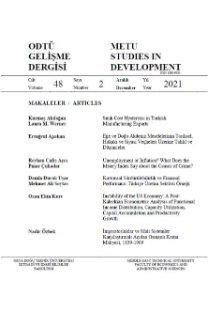Cihan Tuğal, The Fall of the Turkish Model: How the Arab Uprisings Brought Down Islamic Liberalism
Cihan Tuğal, The Fall of the Turkish Model: How the Arab Uprisings Brought Down Islamic Liberalism
Tuğal’s Gramscian perspective, operate independently of one another, Tuğal’s claim is not tested in the trademark rigor of his earlier work. Consider the following quote from chapter four: “Lacking political organizations that tied them together, the Egyptian working and middle classes went their own ways once their fleeting coalition fulfilled its immediate goal (toppling the dictator) and thereby avoided the arduous task of cross-cultural communication, which becomes even more burdensome in the absence of multiclass political organizations. Both classes would pay a dear price for their lack of interest in each other’s concerns in the coming years.” How do we know that the problem is the absence of political organizations rather than social or cultural ones? Tuğal’s specific argument here is based on a comparison with Tunisia, but even supposing that a single comparison can establish anything, what is established is the possibility, not the necessity, of overcoming divisions via work in political society. There just might be other ways. And even if political society turns out to be the absolutely necessary proximate cause, such an effective political society can itself ultimately be the product of a dense and lively civil society, a possibility Tuğal never considers even though the quote above begs for it
___
- GRAMSCI, A. (1971), Selections from the Prison Notebooks of Antonio Gramsci, New York: International Publishers.
- MARDİN, Ş. (1973), “Center-Periphery Relations: A Key to Turkish Politics?”, Daedalus 102(1): 169–190.
- ———— (1989), Religion and Social Change in Modern Turkey: The Case of Bediüzzaman Said Nursi, SUNY Press.
- SANDEL, M. J. (1984), Liberalism and Its Critics, Oxford: Blackwell.
- SEWELL, W. H. (1996), “Three Temporalities: Toward an Eventful Sociology”, The Historic Turn in the Human Sciences, 245–80.
- SKINNER, Q. (1978), The Foundations of Modern Political Thought, Cambridge; New York: Cambridge University Press.
- TUĞAL, C. (2009), Passive Revolution: Absorbing the Islamic Challenge to Capitalism, Stanford, Calif.: Stanford University Press.
- ———— (2016), The Fall of the Turkish Model: How the Arab Uprisings Brought down Islamic Liberalism, London; New York: Verso.
- YAVUZ, M. H. (2009), Secularism and Muslim Democracy in Turkey, Cambridge: Cambridge University Press.
- ISSN: 1010-9935
- Yayın Aralığı: Yılda 3 Sayı
- Başlangıç: 2018
- Yayıncı: ODTÜ İİBF
Sayıdaki Diğer Makaleler
MÜRÜVVET İLKNUR BÜYÜKBOYACI HANAY, SERKAN KÜÇÜKŞENEL
Klasik üretim fonksiyonu bağlamında RTS ve EOS ilişkisi: Saf teorik bir analiz
Cihan Tuğal, The Fall of the Turkish Model: How the Arab Uprisings Brought Down Islamic Liberalism
Economic growth and technological progress in Turkey: An analysis of Schumpeterian mechanisms
Measurement of NAIRU: What is new and what is next for the Turkish economy?
